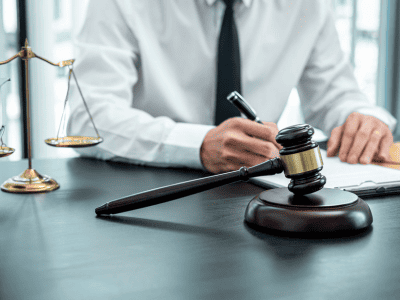4.9 Rating
Google REVIEWS
Leaders in Georgia Personal Injury Law Since 1995
How much is my Georgia auto accident case worth?
Navigating the aftermath of an auto accident in the Peach State can be both physically and emotionally taxing. As victims grapple with injuries and property damage, a pressing question often looms large: “How much is my auto accident case in Georgia really worth?” The answer hinges on a multitude of factors, including the severity of injuries, the extent of property damage, and the specifics of the accident itself. Engaging with a seasoned Atlanta Car Accident Lawyer can provide a clearer picture, ensuring you receive the compensation you truly deserve.
Under Georgia law, the plaintiff in a motor vehicle accident case or for any personal injury case in Georgia for that matter, is entitled to medical expenses, their lost income, and their pain and suffering damages. And they’re entitled to these damages for past, present, and future. Under certain circumstances, if the defendant has been unnecessarily litigious or forced the plaintiff into court, the court may award attorney fees and costs.
In certain circumstances where the defendant has been grossly negligent, reckless, or acted with criminal intent, punitive damages may be awarded to the plaintiff. Please call us and we’ll evaluate your case and explain to you what damages you may be entitled to.
Key Components of Car Accident Settlements in Georgia

1. Calculation of Settlement Value:
The primary step in determining the value of your auto accident case is to consider all damages incurred. This includes not only physical injuries and associated medical bills but also lost wages, property damage, and potential future medical expenses. Emotional distress, loss of consortium, and pain and suffering are also factored into the equation. Collaborating with a knowledgeable Car Accident Lawyer can help ensure all these elements are correctly tabulated.
2. Pain and Suffering in Georgia:
In Georgia, there isn’t a strict formula for calculating pain and suffering. Instead, it’s often a subjective evaluation based on the severity and longevity of your injuries, as well as their impact on your daily life. For instance, if an injury prevents you from engaging in activities you once enjoyed, or causes chronic pain, these factors can substantially increase the compensation amount.


3. Average Settlement Amounts:
While it’s tempting to seek a definitive number, the truth is that each auto accident case is unique. However, on average, minor injury cases can settle for lower amounts, sometimes in the range of $10,000 to $25,000. More severe injury cases, especially those involving long-term impairment or disability, can garner settlements in the six or even seven-figure range.
4. Georgia’s Insurance Policies:
One crucial factor that influences the settlement value is the insurance policy limits of the at-fault driver. If your damages exceed these limits, pursuing additional compensation might require legal action against the individual’s assets or finding other avenues, like underinsured motorist coverage.


Conclusion:
The valuation of an auto accident case in Georgia is a complex process, involving various components from tangible damages like medical bills to intangible ones like emotional distress. To ensure that you’re adequately compensated for all facets of your accident, it’s imperative to engage with a skilled legal professional who can guide you through the intricacies of Georgia’s legal landscape. Your journey towards just compensation begins with understanding the worth of your case and having the right advocate by your side.
Atlanta Truck Accident Lawyer